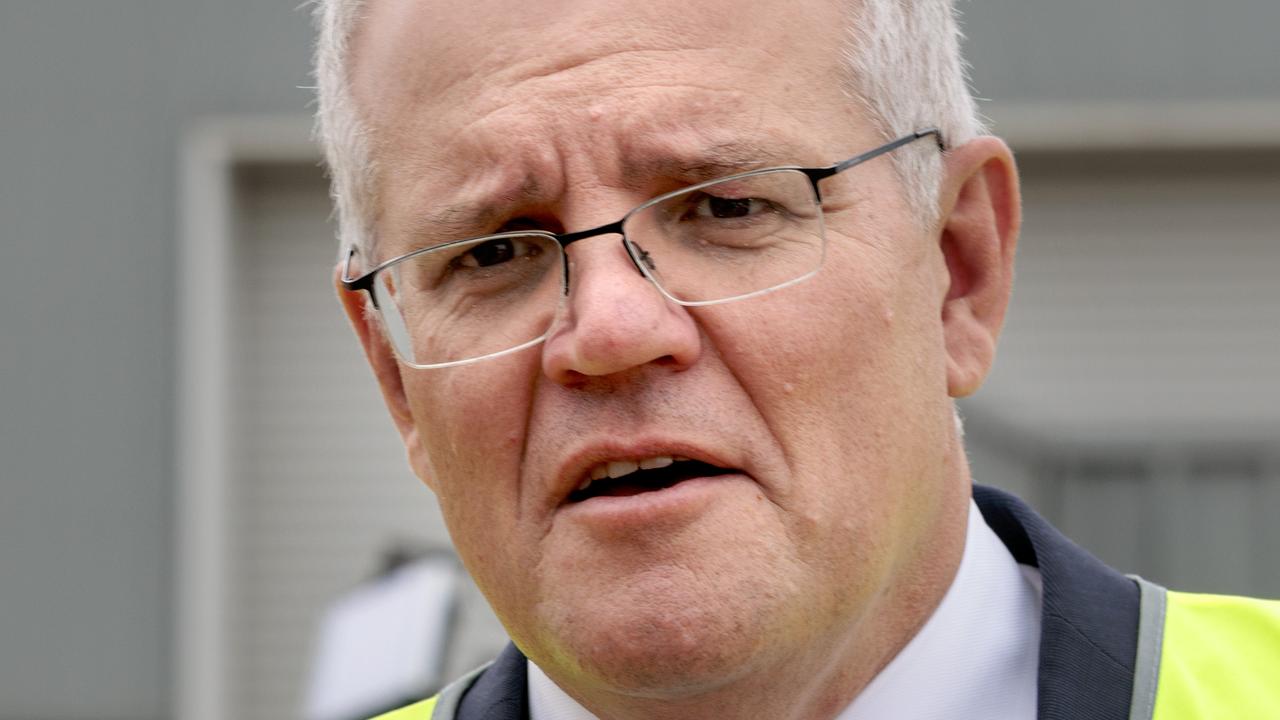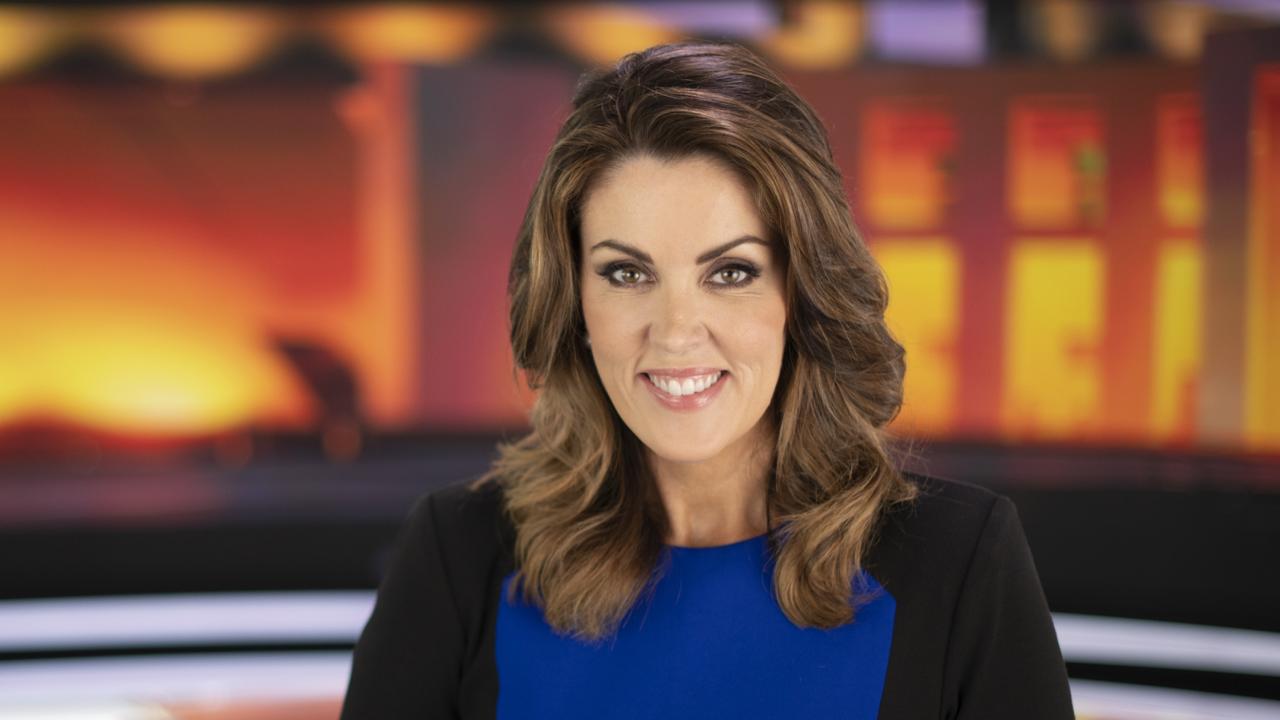The warning from Scott Morrison that Bill Shorten ignored
Scott Morrison kept saying it throughout the campaign but his warning was ignored by Bill Shorten, who thought he was on track to victory.
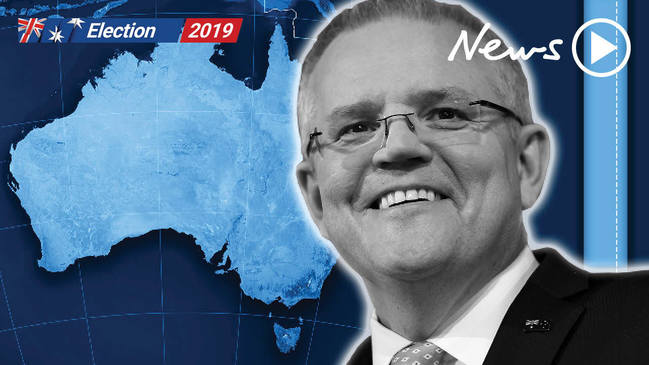
“It’s not a coronation, Bill.”
Scott Morrison kept saying it but the message didn’t seem to sink in until it was too late.
Even though the Prime Minister hit the campaign trail with polls showing the Coalition was behind Labor, the view from the street was different.
Following Mr Morrison around in his first week of campaigning, you could see voters warming to him.
Despite the bad polls, Mr Morrison projected an infectious energy and confidence, was quick to smile and embraced every moment. Unlike other leaders, he did not seem to be embarrassed to put himself in potentially awkward situations.
He enjoyed doing anything sporty, whether that be playing lawn bowls or sinking balls around a pool table.
In pubs he was relaxed and could talk easily with punters.
And he didn’t waste a minute.
Journalists were dragged to job after job, a pace he seemed to increase in the final week of campaigning.
Along the way, Mr Morrison charmed the voters.
Torquay residents Nancy and Grahame Alford watched the Prime Minister play lawn bowls and answer questions at a press conference afterwards in the marginal seat of Corangamite in Victoria.
The retirees were long-time Labor voters but after hearing Mr Morrison’s comments about Labor’s changes to superannuation they told news.com.au they might switch to Liberal.
“I was quite impressed with what he said,” Mrs Alford said.
Before seeing him, Mrs Alford said the impression she had of Mr Morrison was that he “lucked into the job”.
It seemed the more Australians saw of Mr Morrison, the more they liked him.
RELATED: The key seats still in doubt
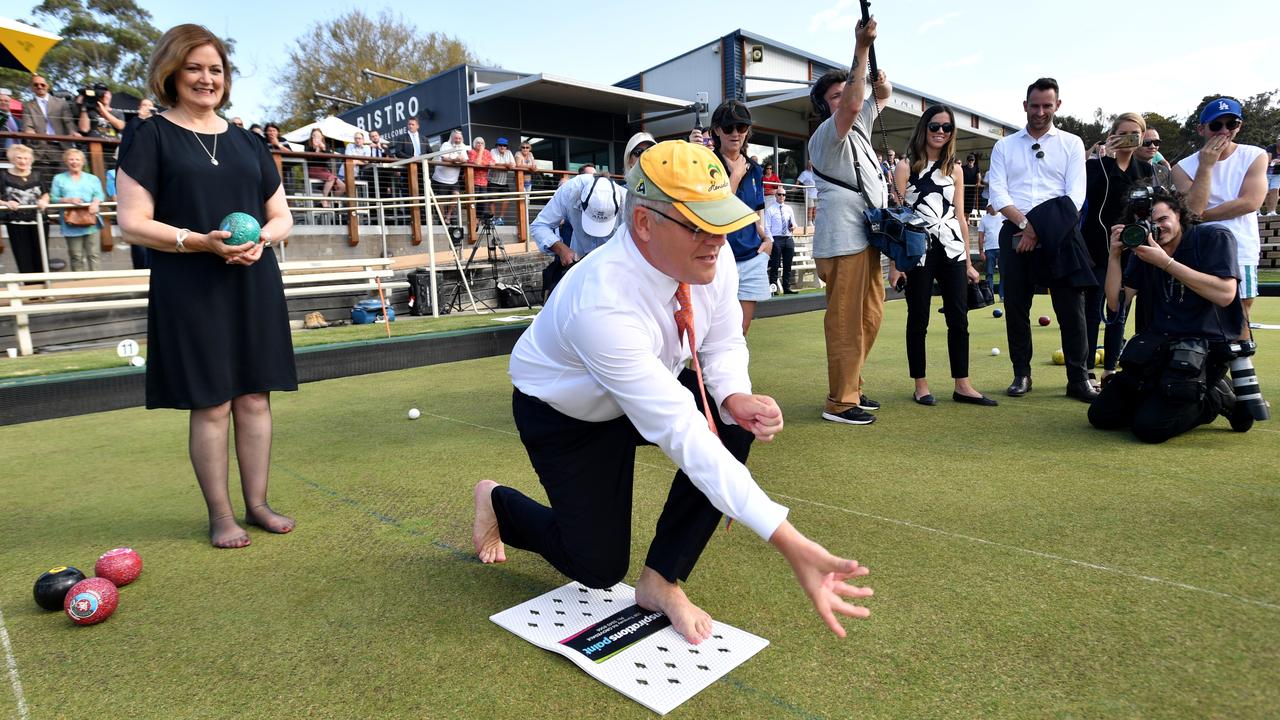
In contrast, Australians had six years to warm to Bill Shorten but even Labor voters like Mr and Mrs Alford didn’t particularly like him.
It was something that people told news.com.au constantly on the campaign trail.
The Alfords said they considered Mr Shorten the lesser of two evils but after hearing about his plans for franking credits, they said they would consider switching their vote.
“Before all this we would have gone straight to Labor,” Mr Alford said.
“But we may end up going where it doesn’t hurt the hip pocket.”
In the last week of campaigning, Mr Shorten was keen to play on people’s memories of the past, despite wanting to talk about a dramatically different future.
Mr Shorten held a Vote for Change rally at Blacktown’s Bowman Hall in western Sydney, where former Labor great Gough Whitlam delivered his policy speech in 1972.
There were echoes of Whitlam’s “It’s Time” campaign with T-shirts being sold at the door and singer Little Pattie, who featured in the campaign ad, a guest at the rally.
“There is a mood for change,” Mr Shorten keep saying.
But on the campaign trail there didn’t seem to be a feeling of momentum or excitement about change, like that which existed during the Kevin 07 campaign.
RELATED: Morrison and Shorten’s photo fails on the campaign trail
RELATED: What Scott Morrison is like on the campaign trail
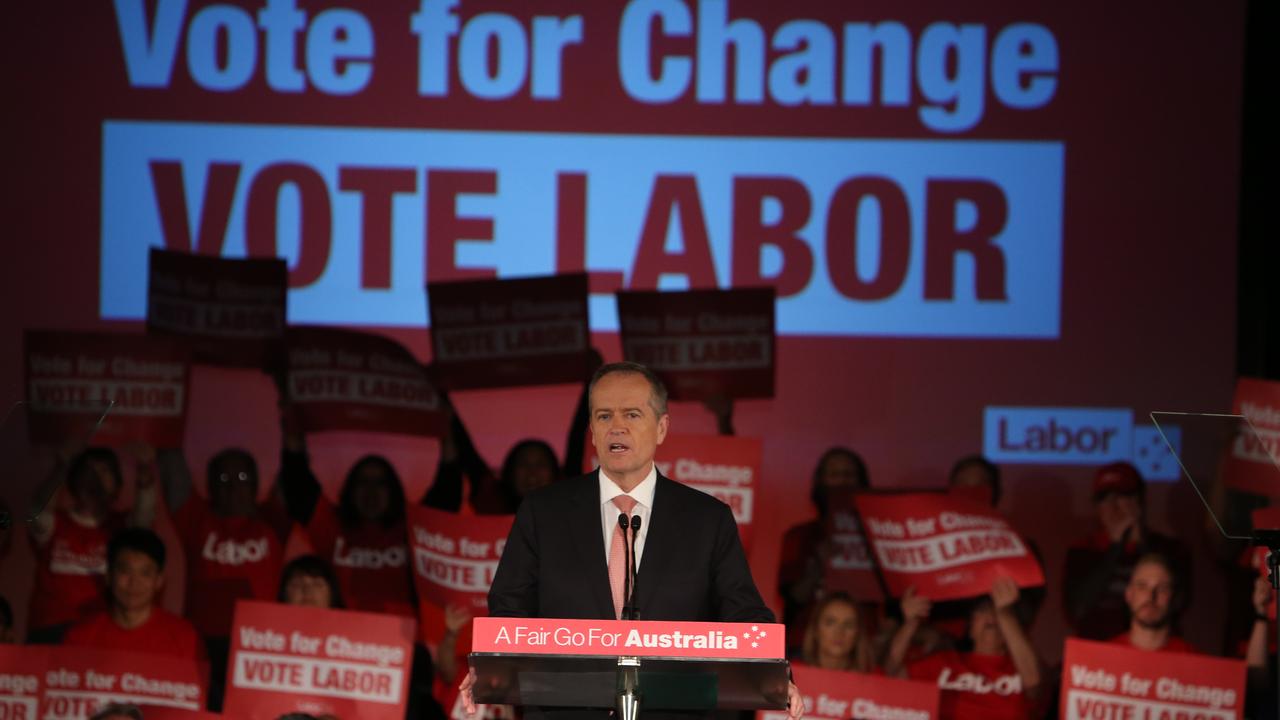
Mr Shorten didn’t do many public events in the last week except for a quick visit to Rhodes railway station in Sydney to hand out how-to-vote cards and a short stop at a Chinese restaurant in Burwood to make some dumplings. Both events took place in the electorate of Reid in Sydney’s west, a seat that eventually was retained by the Liberal Party.
At the train station, the public were polite but not particularly engaged, understandable as many seemed focused on getting to work on time.
Diners at the Chinese restaurant were more enthusiastic but Mr Shorten only met a handful of people, and most were already Labor voters.
Mr Shorten’s most effusive welcome was from the schoolgirls at St Joseph’s College in East Gosford on the NSW Central Coast but many just seemed overcome with the excitement of meeting a famous person, and were too young to vote anyway.
Apart from one day when Mr Shorten criss-crossed the country from Tasmania, to South Australia and Western Australia, the pace during the last week seemed sluggish.
After the death of Labor giant Bob Hawke, this slowed even more, with campaigning in Queensland dropped in favour of honouring the former prime minister.
Mr Shorten said there were “more important things than scrounging a vote” but it was also clear he felt confident about a Labor win.
The night before election day, Mr Shorten spent the afternoon at the old John Curtin pub in Melbourne where he had beers to honour Hawkie and was greeted warmly by punters in the safe Labor territory.
Other reports suggest Labor volunteers were packing up early at polling booths on Election Day in marginal seats such as Corangamite, while Liberals stayed put.
Hendo accused ALP of taking win for granted. “At the Grovedale booth tonight, at 520pm the Labor Party started to pack up. We didn’t move until the doors were closed†#geelongvotes
— Andrew Jefferson (@AndrewJeffo) May 18, 2019
In contrast, Mr Morrison campaigned harder, hitting several electorates in Queensland on Friday and pulling off some 20-hour days in the last week.
News.com.au has also learned that Mr Morrison was hitting the phones almost every night in the past three weeks of the campaign, speaking directly to voters to hear their thoughts and spruik his party’s policies.
It was clear Mr Morrison out-campaigned Mr Shorten and even the polls showed the result was not going to be a landslide. With Labor’s ambitious policy agenda, this was always going to be a problem.
At polling booths on Saturday, there were well wishes for Mr Shorten but the praise was far from effusive.
“Please do a good job,” one supporter said as Mr Shorten arrived. Another approached him with the fingers of both hands crossed to wish him good luck.
While there was hope for a Labor victory, there was no overwhelming excitement.
When asked what she thought of Mr Shorten, lifelong Labor voter Orme Harris, 76, said he was “wonderful” but focused more on his policies for reform and being a terrific team builder than on the Labor leader personally.
The death of Mr Hawke highlighted this even more.
There was much coverage of the ambitious reforms Mr Hawke managed to achieve but what was also clear in the reporting, was Mr Hawke was a beloved figure among Australians.
The country fell in love with this larrikin character and trusted him to lead the country in the right direction.
In the end, Mr Shorten may have tried to channel the spirit of previous Labor giants but ultimately he failed to convince Australians why they should back his plans for change.
Continue the conversation @charischang2 | charis.chang@news.com.au


